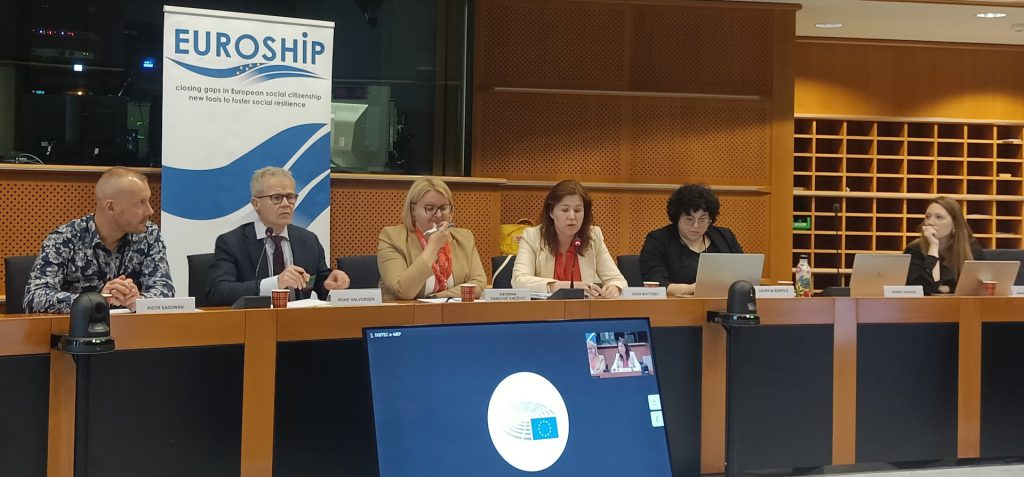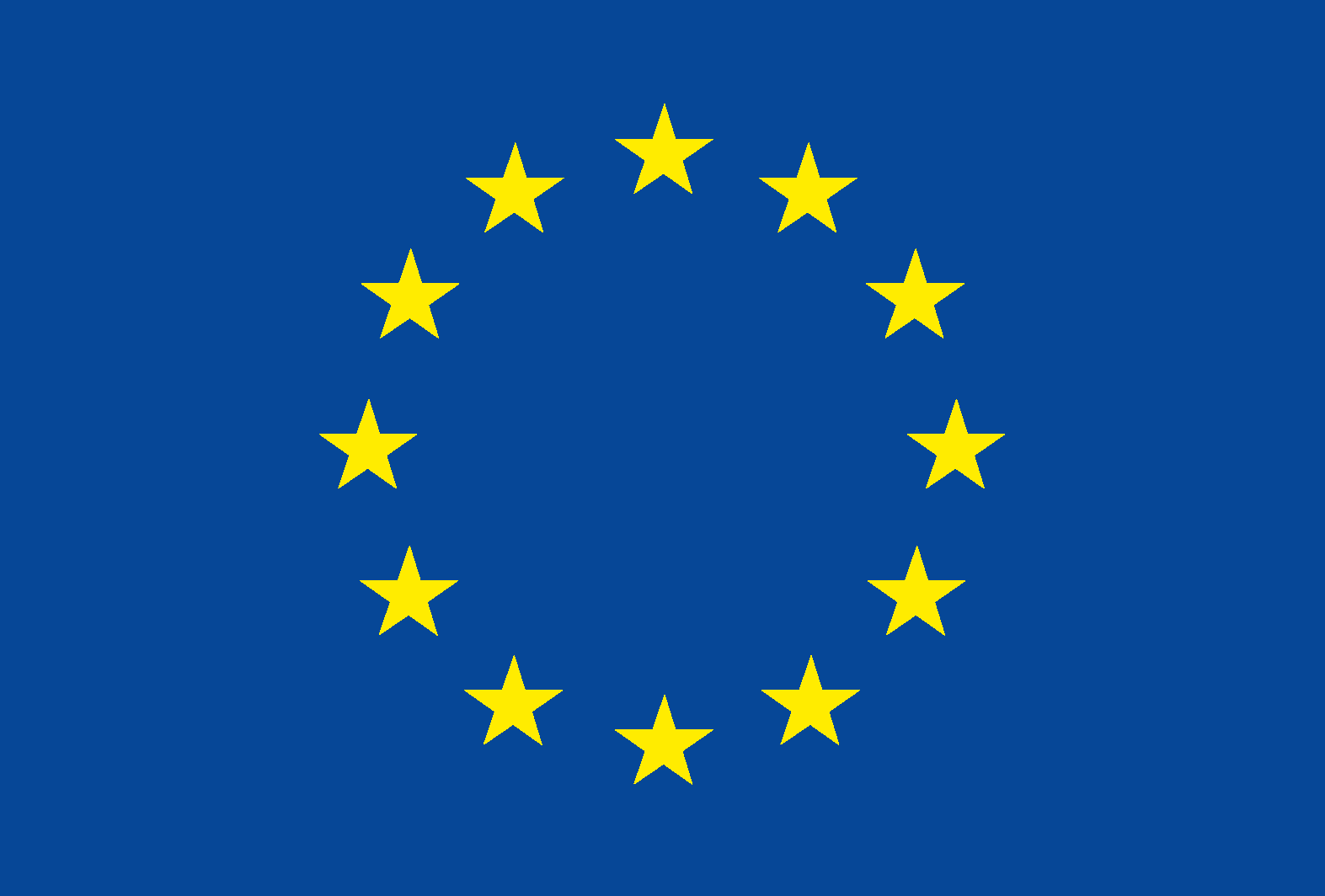Poverty eradication in Europe is attainable, it is just a matter of political choice.
This was the argument of MEP Sara Matthieu, in her opening speech during EUROSHIP’s Final Conference, which took place in the European Parliament in Brussels on Thursday 8 June. Representatives from EUROSHIP’s Consortium joined the event alongside stakeholders from the European Trade Union Institute (ETUI), Eurodiaconia, European Anti-Poverty Network (EAPN) and COFACE, as well as from the European Parliament and the European Commission.

As the EUROSHIP project comes to a close, this final conference marked an occasion to present the project’s findings and recommendations, which put a spotlight on the reality of poverty and social exclusion across different European regions.
Amid a cost-of-living crisis and rising poverty levels, the research comes at an important time. All stakeholders agreed that the findings reflect the reality on the ground for many Europeans and acknowledged the value of the research in pushing for a more social Europe. As Bianca Luna Fabris, Researcher and Communications Officer at ETUI, underlined, the EUROSHIP project findings are fundamental in pushing for a European social agenda, as they provide the right evidence to inform policy making.
A common message given by speakers throughout the conference is the crucial role played by the European Pillar of Social Rights in closing the gaps in social protection. Indeed, according to Caterina Arciprete, Researcher at the University of Florence, who presented an overview on regional inequalities, the Pillar is highly relevant to develop upward social convergence and build a prosperous future for the European Union. Director for Social Rights and Inclusion (DG EMPL), Katarina Ivankovic-Knezevic, also stressed the necessity of focusing on the Social Pillar Action Plan and highlighted the progress that has been made on social matters during this mandate of the European Commission, such as a Directive on Adequate Minimum Wage, the European Child Guarantee, and the European Care Strategy.
More progress in needed in tackling inequalities, however, as EUROSHIP findings have also demonstrated the necessity of the introduction of adequate minimum income schemes to lift people out of poverty and social exclusion across member states. As pointed out by Sheila Gois Habib, Policy and Advocacy Officer at EAPN, the level of social protection currently provided by minimum income schemes are still insufficient and inaccessible to many.
What is needed to make this progress possible? According to Matteo Jessoula, Professor at the University of Milan, monitoring and improving indicators, and strengthening multi-level and multi-actor relationships are two important steps. In addition, the development of a new discourse around minimum income is needed: one more focused on enabling people, and less on stressing activation measures to push them back into labour market.
For all those who have been involved in this project, this final presentation of the findings is by no means the end of the story. Researchers and stakeholders will continue to use this research in their work with EU institutions and member states to bridge existing social gaps and ensure that Europe leaves no one behind.

